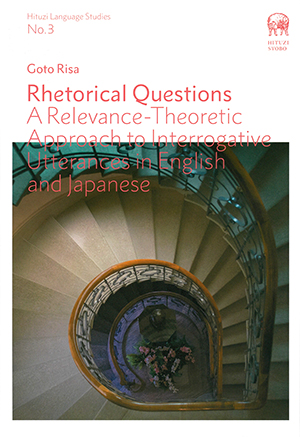2018年2月刊行

Hituzi Language Studies No.3
Rhetorical Questions: A Relevance-Theoretic Approach to Interrogative Utterances in English and Japanese
後藤リサ著
ブックデザイン 白井敬尚形成事務所
菊判上製カバー装 208頁 定価10000円+税
ISBN 978-4-89476-883-3
 |
Hituzi Language Studies No.3Rhetorical Questions: A Relevance-Theoretic Approach to Interrogative Utterances in English and Japanese後藤リサ著 ISBN 978-4-89476-883-3 |


